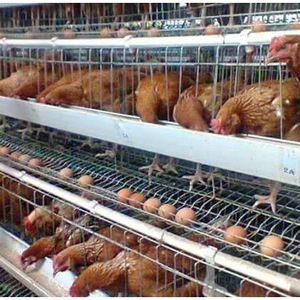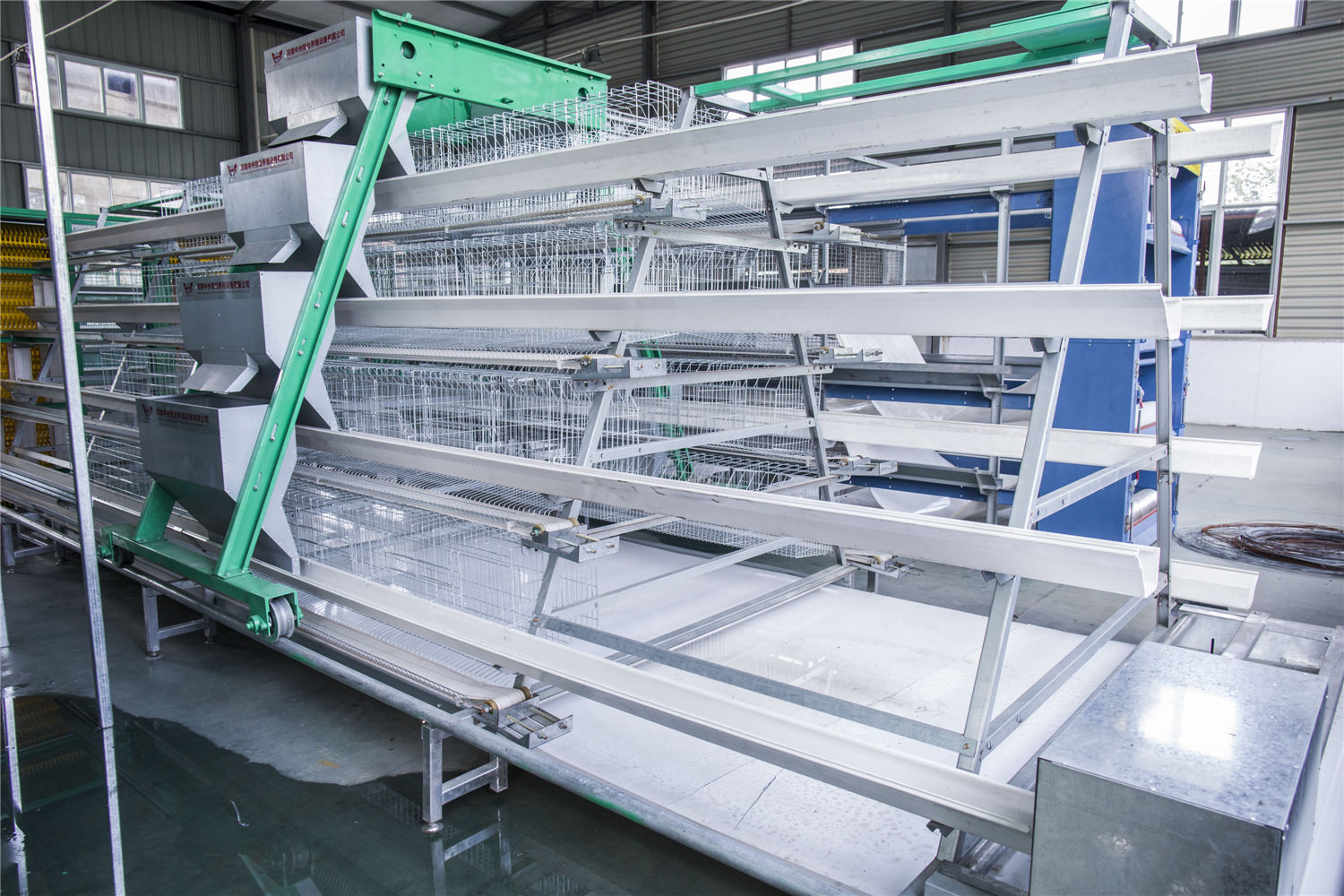What are the deodorization methods for chicken houses in chicken farms?
- Published in Chicken cages
In the case of large-scale chicken breeding, the chicken coops are required to clean up the chicken droppings in the chicken battery cages . After all, the chickens are kept in the chicken coops and there is not much room for activities, otherwise the environmental sanitation of the chicken coops will be affected. However, there is still a foul smell when the chicken droppings are cleaned up in time. How should the chicken coops be deodorized?
1. Deodorization of padding
The chicken coop uses 5 kg of sulfur per 100 square meters of floor, mixes it into the padding, maintains appropriate humidity, and cleans the padding every 15 days. Mixing sulfur into the padding can make the pH value of the padding less than 7.0, which can inhibit the generation and emission of ammonia in feces, reduce the ammonia content in the air of chicken coops and reduce the odor of ammonia.
2, the ground odor absorption
10 kg of calcium superphosphate is used for every 100 square meters of ground in the chicken coop, and is sprinkled in the ground padding, generally once every 15 days. Superphosphate reacts with ammonia generated in chicken manure to generate odorless solid ammonium phosphate, which can reduce ammonia emission in feces and reduce odor in chicken coops.
3. Chemical deodorization
Hydrogen peroxide, potassium permanganate, copper sulfate, acetic acid and the like have odor inhibiting effects and can reduce the odor of chicken coop air. The method is to spray padding with 4% copper sulfate, 2% benzoic acid or 2% acetic acid, and sprinkle 5 kg of hydrated lime per 100 square meters of chicken coop once every 15 days to remove padding in time.

4. Spray deodorization
Using 0.3% peracetic acid solution and 30ml per cubic meter of space, spray the chicken house and chicken body with a sprayer 1-2 times a week. Peroxyacetic acid and ammonia gas can generate ammonium acetate, which not only has disinfection and disease prevention effects on chickens, but also can improve the air quality of chicken houses and reduce the content of harmful gases.
5. Adsorption deodorization
Activated carbon, coal cinder, quicklime, etc. have strong adsorption effect. These substances with adsorption effect can be packed into net bags and hung in chicken coops or scattered on the ground, which can absorb odor in the air and remove harmful gases in the air.
6. Biological Deodorization
Studies have found that many beneficial microorganisms can improve the utilization rate of feed protein, reduce ammonia emission in feces, inhibit bacteria from producing harmful gases, and reduce the content of harmful gases in the air. At present, there are many types of beneficial microbial agents (EM) commonly used, which can be mixed and fed according to the product instructions or mixed with water for drinking, and can also be sprayed on chicken coops.
10, add biological agents
Proper addition of probiotics or compound enzyme preparation to the feed can improve the digestibility and utilization rate of feed protein, reduce the conversion of protein to ammonia and amine, greatly reduce the excretion of nitrogen in feces, not only improve the air quality in chicken coops, but also save the feed.
These are several methods of deodorization in chicken coops. Chicken coops must strengthen management, clean up excrement and bedding Chicken Battery Farm Equipment For Sale in time, and keep the ventilation in the chicken coops. During ventilation in autumn and winter, chickens should be prevented from catching cold. I hope the above methods can be helpful to chicken house.

